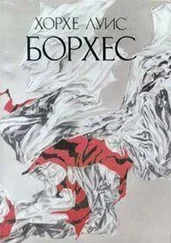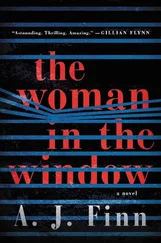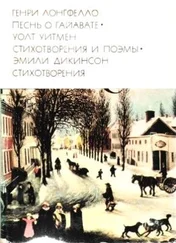Уолт Уитмен - The Wound Dresser
Здесь есть возможность читать онлайн «Уолт Уитмен - The Wound Dresser» — ознакомительный отрывок электронной книги совершенно бесплатно, а после прочтения отрывка купить полную версию. В некоторых случаях можно слушать аудио, скачать через торрент в формате fb2 и присутствует краткое содержание. Жанр: foreign_prose, История, foreign_edu, foreign_antique, на английском языке. Описание произведения, (предисловие) а так же отзывы посетителей доступны на портале библиотеки ЛибКат.
- Название:The Wound Dresser
- Автор:
- Жанр:
- Год:неизвестен
- ISBN:нет данных
- Рейтинг книги:4 / 5. Голосов: 1
-
Избранное:Добавить в избранное
- Отзывы:
-
Ваша оценка:
- 80
- 1
- 2
- 3
- 4
- 5
The Wound Dresser: краткое содержание, описание и аннотация
Предлагаем к чтению аннотацию, описание, краткое содержание или предисловие (зависит от того, что написал сам автор книги «The Wound Dresser»). Если вы не нашли необходимую информацию о книге — напишите в комментариях, мы постараемся отыскать её.
The Wound Dresser — читать онлайн ознакомительный отрывок
Ниже представлен текст книги, разбитый по страницам. Система сохранения места последней прочитанной страницы, позволяет с удобством читать онлайн бесплатно книгу «The Wound Dresser», без необходимости каждый раз заново искать на чём Вы остановились. Поставьте закладку, и сможете в любой момент перейти на страницу, на которой закончили чтение.
Интервал:
Закладка:
Through Fourteenth street to the river, and then over the long bridge and some three miles beyond, is the huge collection called the convalescent camp. It is a respectable sized army in itself, for these hospitals, tents, sheds, etc., at times contain from five to ten thousand men. Of course there are continual changes. Large squads are sent off to their regiments or elsewhere, and new men received. Sometimes I found large numbers of paroled returned prisoners here.
During October, November, and December, 1864, I have visited the military hospitals about New York City, but have not room in this article to describe these visits.
I have lately been (November 25) in the Central-park hospital, near One Hundred and Fourth street; it seems to be a well-managed institution. During September, and previously, went many times to the Brooklyn city hospital, in Raymond street, where I found (taken in by contract) a number of wounded and sick from the army. Most of the men were badly off, and without a cent of money, many wanting tobacco. I supplied them, and a few special cases with delicacies; also repeatedly with letter-paper, stamps, envelopes, etc., writing the addresses myself plainly—(a pleased crowd gathering around me as I directed for each one in turn.) This Brooklyn hospital is a bad place for soldiers, or anybody else. Cleanliness, proper nursing, watching, etc., are more deficient than in any hospital I know. For dinner on Sundays I invariably found nothing but rice and molasses. The men all speak well of Drs. Yale and Kissam for kindness, patience, etc., and I think, from what I saw, there are also young medical men. In its management otherwise, this is the poorest hospital I have been in, out of many hundreds.
Among places, apart from soldiers’, visited lately (December 7) I must specially mention the great Brooklyn general hospital and other public institutions at Flatbush, including the extensive lunatic asylum, under charge of Drs. Chapin and Reynolds. Of the latter (and I presume I might include these county establishments generally) I have deliberately to put on record about the profoundest satisfaction with professional capacity, completeness of house arrangements to ends required, and the right vital spirit animating all, that I have yet found in any public curative institution among civilians.
In Washington, in camp and everywhere, I was in the habit of reading to the men. They were very fond of it, and liked declamatory, poetical pieces. Miles O’Reilly’s pieces were also great favorites. I have had many happy evenings with the men. We would gather in a large group by ourselves, after supper, and spend the time in such readings, or in talking, and occasionally by an amusing game called the game of Twenty Questions.
For nurses, middle-aged women and mothers of families are best. I am compelled to say young ladies, however refined, educated, and benevolent, do not succeed as army nurses, though their motives are noble; neither do the Catholic nuns, among these home-born American young men. Mothers full of motherly feeling, and however illiterate, but bringing reminiscences of home, and with the magnetic touch of hands, are the true women nurses. Many of the wounded are between fifteen and twenty years of age.
I should say that the Government, from my observation, is always full of anxiety and liberality toward the sick and wounded. The system in operation in the permanent hospitals is good, and the money flows without stint. But the details have to be left to hundreds and thousands of subordinates and officials. Among these, laziness, heartlessness, gouging, and incompetency are more or less prevalent. Still, I consider the permanent hospitals, generally, well conducted.
A very large proportion of the wounded come up from the front without a cent of money in their pockets. I soon discovered that it was about the best thing I could do to raise their spirits and show them that somebody cared for them, and practically felt a fatherly or brotherly interest in them, to give them small sums, in such cases, using tact and discretion about it.
A large majority of the wounds are in the arms and legs. But there is every kind of wound in every part of the body. I should say of the sick, from my experience in the hospitals, that the prevailing maladies are typhoid fever and the camp fevers generally, diarrhœa, catarrhal affections and bronchitis, rheumatism and pneumonia. These forms of sickness lead, all the rest follow. There are twice as many sick as there are wounded. The deaths range from six to ten per cent of those under treatment.
I must bear my most emphatic testimony to the zeal, manliness, and professional spirit and capacity generally prevailing among the surgeons, many of them young men, in the hospitals and the army. I will not say much about the exceptions, for they are few (but I have met some of those few, and very foolish and airish they were). I never ceased to find the best young men, and the hardest and most disinterested workers, among these surgeons, in the hospitals. They are full of genius, too. I have seen many hundreds of them, and this is my testimony.
During my two years in the hospitals and upon the field, I have made over six hundred visits, and have been, as I estimate, among from eighty thousand to one hundred thousand of the wounded and sick, as sustainer of spirit and body in some slight degree, in their time of need. These visits varied from an hour or two, to all day or night; for with dear or critical cases I watched all night. Sometimes I took up my quarters in the hospital, and slept or watched there several nights in succession. I may add that I am now just resuming my occupation in the hospitals and camps for the winter of 1864-5, and probably to continue the seasons ensuing.
To many of the wounded and sick, especially the youngsters, there is something in personal love, caresses, and the magnetic flood of sympathy and friendship, that does, in its way, more good than all the medicine in the world. I have spoken of my regular gifts of delicacies, money, tobacco, special articles of food, knick-knacks, etc., etc. But I steadily found more and more that I could help, and turn the balance in favor of cure, by the means here alluded to, in a curiously large proportion of cases. The American soldier is full of affection and the yearning for affection. And it comes wonderfully grateful to him to have this yearning gratified when he is laid up with painful wounds or illness, far away from home, among strangers. Many will think this merely sentimentalism, but I know it is the most solid of facts. I believe that even the moving around among the men, or through the ward, of a hearty, healthy, clean, strong, generous-souled person, man or woman, full of humanity and love, sending out invisible, constant currents thereof, does immense good to the sick and wounded.
To those who might be interested in knowing it, I must add, in conclusion, that I have tried to do justice to all the suffering that fell in my way. While I have been with wounded and sick in thousands of cases from the New England States, and from New York, New Jersey, and Pennsylvania, and from Michigan, Wisconsin, Indiana, Illinois, and the Western States, I have been with more or less from all the States North and South, without exception. I have been with many from the border States, especially from Maryland and Virginia, and found far more Union Southerners than is supposed. I have been with many Rebel officers and men among our wounded, and given them always what I had, and tried to cheer them the same as any. I have been among the army teamsters considerably, and indeed always find myself drawn to them. Among the black soldiers, wounded or sick, and in the contraband camps, I also took my way whenever in their neighborhood, and I did what I could for them.
W. W.
From the New York Times, December 11, 1864 .
Читать дальшеИнтервал:
Закладка:
Похожие книги на «The Wound Dresser»
Представляем Вашему вниманию похожие книги на «The Wound Dresser» списком для выбора. Мы отобрали схожую по названию и смыслу литературу в надежде предоставить читателям больше вариантов отыскать новые, интересные, ещё непрочитанные произведения.
Обсуждение, отзывы о книге «The Wound Dresser» и просто собственные мнения читателей. Оставьте ваши комментарии, напишите, что Вы думаете о произведении, его смысле или главных героях. Укажите что конкретно понравилось, а что нет, и почему Вы так считаете.











